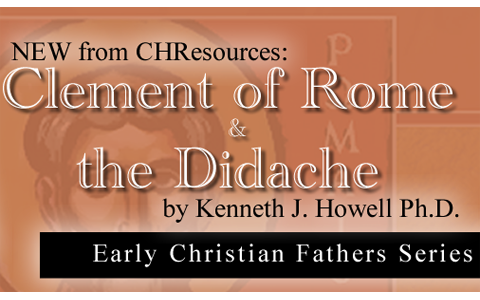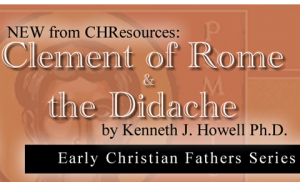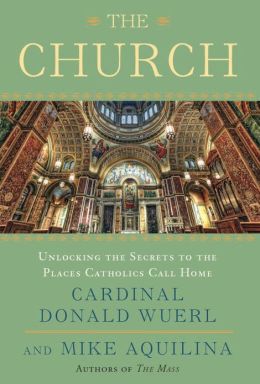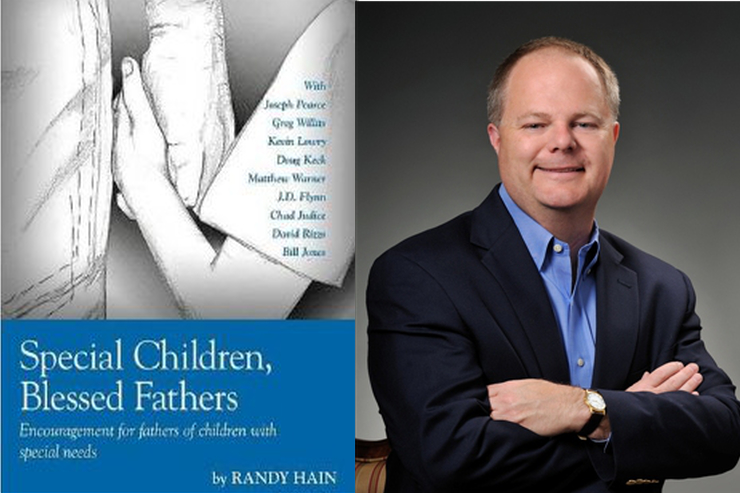If a fulfilling career consists of working with terrific people, then I must have one of the greatest jobs on earth.
After twenty years in financial and executive roles, it has been my privilege since 2010 to work with The Coming Home Network International (CHNetwork), a Catholic apostolate that helps non-Catholic clergy and laity to come home, and be at home, in the Catholic Church. Many people recognize the organization’s founder, Marcus Grodi, through the popular EWTN show The Journey Home.
For the past year, we have also enjoyed having Dr. Kenneth Howell on our staff as Resident Theologian. Among Ken’s noteworthy achievements are his not one, but two earned doctorates. He is the author of seven books and has published dozens of articles in scholarly and popular journals. Ken taught for thirty years in seminaries and universities prior to joining the staff of CHNetwork on a full-time basis.
Ken has a particular interest in the Church Fathers, and a deep appreciation for their role in the conversion of hearts to Jesus Christ through the centuries. He recently published a new book entitled Clement of Rome & the Didache – A New Translation and Theological Commentary. It’s the second in his Early Christian Fathers series, following Ignatius of Antioch and Polycarp of Smyrna. I was fortunate enough to catch up with Ken recently to ask him about the book and what we can learn from Clement’s Letter to the Corinthians and the Didache. Our exchange follows.
KL – Tell us a little about Clement of Rome. Who was he, and why are his writings important?
KH – Clement was the third Bishop of Rome after St. Peter. The two others who preceded him were Linus (2 Tim 4:21) and Cletus. Clement wrote the first papal letter after St. Peter’s two in the New Testament. The letter was sent to the Corinthian Church and is a little over 10,000 words. The Corinthian Church was torn by sedition and schism as it was in St. Paul’s day. Clement exhorts the Corinthians to obedience to their official presbyters (priests) and to the restoration of peace and unity.
KL – How did you become interested in Clement in the first place, and how have his writings influenced your thinking?
KH – About five years ago I began a project of translating some of the Apostolic Fathers. The first book on Ignatius of Antioch and Polycarp of Smyrna appeared in 2009. Now with this book on Clement and the Didache, we have four of the earliest witnesses to what Christianity was like in the generation just after the death of the apostles.
KL – In your book, I love how you’ve given the reader a vivid context for Clement’s writings. What was he attempting to accomplish in writing his Letter to the Corinthians and how does that relate to the Didache?
KH – Clement was attempting to quell the sedition or rebellion against the official leaders of the Church and to restore the sense of unity the Church possesses as a gift from Christ. Unity in the Church is always God’s will, as Jesus’s prayer in the Gospel of John, chapter 17, shows. Clement, as the supreme Pastor of the church, knows that he should be an instrument of unity and so he writes to restore order to the Corinthian church. His appeal is not to himself as a personal authority but to apostolic succession. His office, like all the bishops of the Church, derives from the apostles through successive ordination.
The Didache originates from Syria and its author is unknown. But the importance of the Eucharist becomes clear in the Didache and shows how important prayer for unity was in the liturgy of the Church in Syria.
Together, Clement’s letter and the Didache show us what Christianity was like in the second half of the first century.
KL – Clement’s writings are so rich, and have a timeless quality. Are there any passages of these letters that strike you as particularly meaningful for our lives today?
KH – There are too many passages to list but two that strike me as relevant and illuminating are chapter 44 where Clement teaches apostolic succession, that is, the doctrine that the bishops are in a line of succession from the apostles and their legitimacy is not based on popular vote but on historical continuity. The second is chapter 49 where he praises love for God and neighbor as the fount of goodness in the Church and the world. It is very similar to Paul’s panegyric on love in 1 Corinthians 13. These two chapters show how both church structure and the dynamic of love are crucial for the unity and peace of the Church.
KL – I had to look up panegyric, thanks for that. Describe your work with The Coming Home Network. Have you gained any insights through Clement that speak to the important cause of Christian unity?
KH – My work consists of helping Protestant ministers who have already indicated an interest in becoming Catholic to make a transition into the Catholic Church in a healthy and productive way. Sometimes people forget that pastors need pastors, just as physicians need physicians. Our work at CHN is a team effort in which we all seek to help men and women with theological, emotional, marital, vocational, and other practical issues in their transition. It is a quiet and confidential work but there continues to be a steady stream of ministers from many denominations who are entering the Catholic Church with great joy.
KL – Do you have any other thoughts you’d like to share with ICL’s readers?
KH – The Fathers of the Church are so important for us to read and digest because they provide the common ground for the restoration of Christian unity that Jesus Christ prayed for, that the apostles taught (cf. Eph. 4:1-6), and that John Paul II said is the urgent need of this third millennium.
KL – Where can we get more information or order a copy of the book?
KH – Visit clementofrome.com or call CHNetwork at (800) 664-5110. More information on The Coming Home Network International can also be found at chnetwork.org
Kevin is the author of Faith at Work: Finding Purpose Beyond the Paycheck (OSV) which is available on Amazon and through his website, A Grateful Convert.
Please help us in our mission to assist readers to integrate their Catholic faith, family and work. Tell your family and friends about this article using both the Share and Recommend buttons below and via email. We value your comments and encourage you to leave your thoughts below. Thank you! – The Editors















